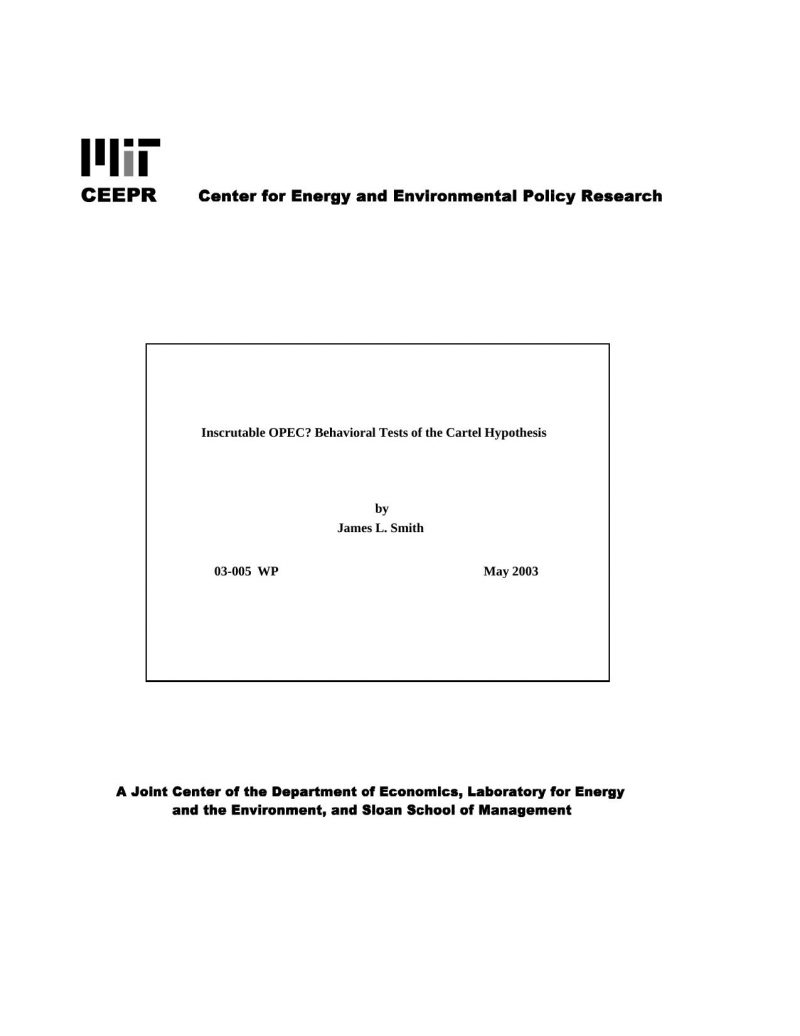Inscrutable OPEC? Behavioral Tests of the Cartel Hypothesis
James L. Smith
03-May
We show that standard statistical tests of OPEC behavior have very low power across a wide range of alternative hypotheses regarding market structure. Consequently, it is difficult, given the current availability and precision of data on demand and costs, to distinguish collusive from competitive behavior in the world oil market. This, along with other factors, may account for the largely inconclusive nature of findings so far reported in the empirical literature on OPEC. We apply a new approach for examining alternative hypotheses and find strong evidence of cooperative behavior among OPEC members. Our results also suggest that OPEC’s formal quota mechanism, introduced in 1982 to replace a system based on posted prices, increased transactions costs within the organization. We do not find strong evidence to support the view that Saudi Arabia has played the role of dominant producer within the cartel.



